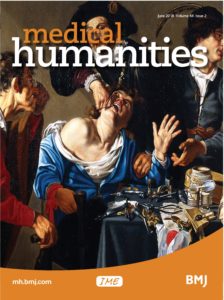
In her article from our June special issue, “Pain and its Paradoxes”, Kari Campeau investigates how Somali women living in the US understand their experience of chronic pain, its treatment and their strategies for coping with that pain in her study, “Adaptive Frameworks of Chronic Pain: Daily Remakings of Pain and Care at a Somali Refugee Women’s Health Centre.” Using a mix of in-depth interviews, participant observation and focus group meetings with fifteen Somali women and with healthcare workers based at a small health centre, Campeau seeks to understand the correspondences and disjuncture between Western-centric definitions of pain and Somali womens’ own experience and understanding of chronic pain. Noting the disparities in treatment between patients of different racial, gender and socio-economic backgrounds in medical institutions in the US, Campeau’s study responds to the lack of research into non-white womens’ experience of pain. Using Grounded Theory to develop categories that are emergent from the data, Campeau offers four frameworks for conceptualising the respondents’ account of pain: pain as a symptom of exile; pain and the strength to bear pain as issues of faith; medicine as powerful, curative and fluid; and medical exclusion and discrimination. While cognisant that the study’s small sample size precludes generalisability, its findings nevertheless confirm the findings of previous studies and offer several avenues for future research into the construction of explanatory narratives for living with and treating chronic pain.
The author offers her own account of the issues that inform her research in the short audio clip below.
Read the full article on the Medical Humanities Journal website.